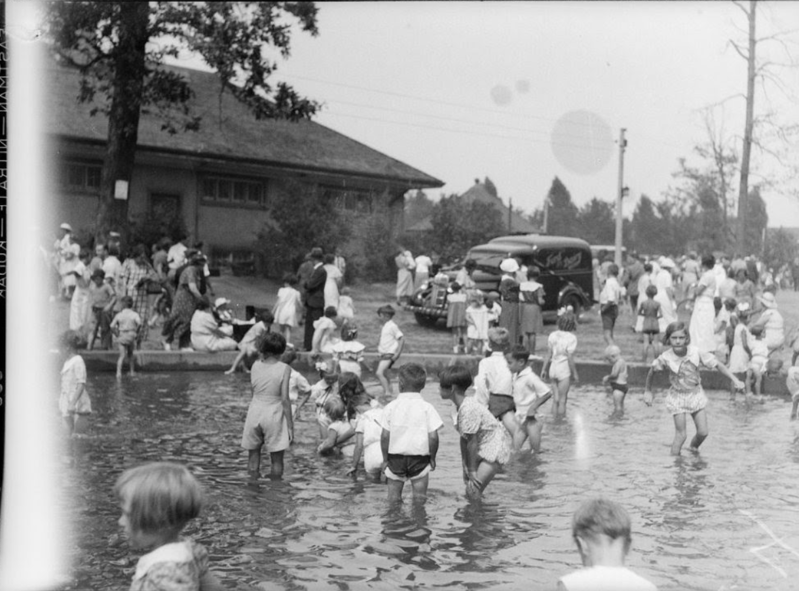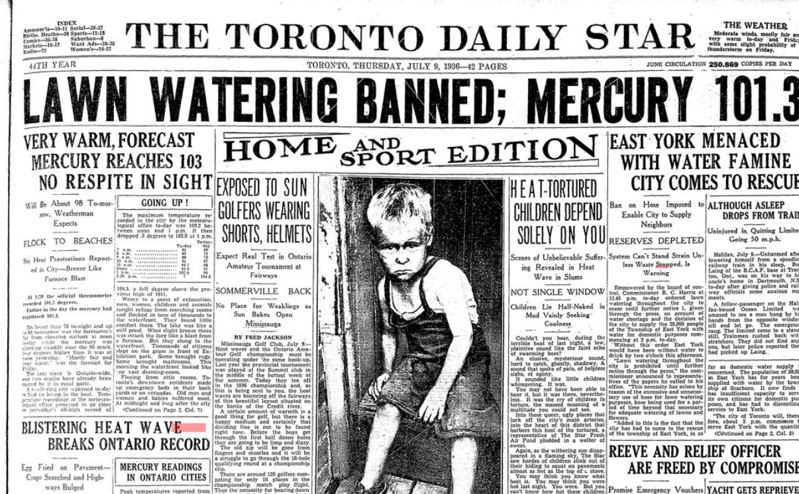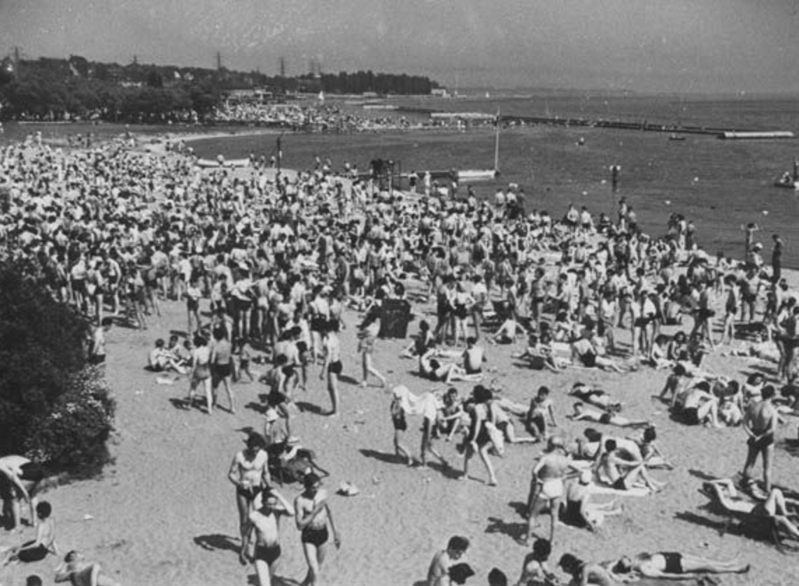Randi Mann 7 hrs ago
Listen to The Weather Network's This Day in Weather History podcast on this topic, here.
This Day In Weather History is a daily podcast by The Weather Network that features stories about people, communities, and events and how weather impacted them.
--
On Sunday, July 5, 1936, one of Canada's deadliest heat waves hit Manitoba and Ontario. It was part of the 1936 North American heat wave. It took place during the Great Depression and Dust Bowl.

© Provided by The Weather NetworkCity of Toronto Archives
In North America, the heat wave killed more than 5,000 people and destroyed a vast number of crops. The weather event set many record highs that held until the 2012 North American heat wave. The 1936 heat wave was also followed by one of the continent's coldest winters.

In North America, the heat wave killed more than 5,000 people and destroyed a vast number of crops. The weather event set many record highs that held until the 2012 North American heat wave. The 1936 heat wave was also followed by one of the continent's coldest winters.

© Provided by The Weather NetworkCity of Toronto Archives
In late June, the temperatures started to exceed 38 °C across the United States. The Midwest was faced with some of their hottest temperatures on record. In the Northeast, the temperatures reached approximately 35 °C.
In July, North Dakota reached a record 49 °C; still the hottest temperature in the state's history. Many other states set record highs during the month.
In Canada, Ontario and Manitoba reached 43 °C, tying previous heat records. By July 5, Ontario was in a drought. Areas from what is now the QEW corridor, from Hamilton to Niagara and Lake Erie was described as “parched waste,” in the Toronto Daily Star.

In late June, the temperatures started to exceed 38 °C across the United States. The Midwest was faced with some of their hottest temperatures on record. In the Northeast, the temperatures reached approximately 35 °C.
In July, North Dakota reached a record 49 °C; still the hottest temperature in the state's history. Many other states set record highs during the month.
In Canada, Ontario and Manitoba reached 43 °C, tying previous heat records. By July 5, Ontario was in a drought. Areas from what is now the QEW corridor, from Hamilton to Niagara and Lake Erie was described as “parched waste,” in the Toronto Daily Star.

© Provided by The Weather Network Courtesy of The Toronto Daily Star
By July 9, temperatures surpassed 40 °C. Areas in Toronto were referred to as “downtown slums” and “districts of torture.” Drivers were lined up on Fleet Street in hopes of getting some lake breeze.

By July 9, temperatures surpassed 40 °C. Areas in Toronto were referred to as “downtown slums” and “districts of torture.” Drivers were lined up on Fleet Street in hopes of getting some lake breeze.

© Provided by The Weather NetworkCity of Toronto Archives
By July 15, the temperatures finally made it out of the 40s and 30s and sat in the high 20s. By then, the heatwave killed more than 200 people in Toronto. The overall death toll in Canada was around 1,180.
To learn more about the 1936 heatwave, listen to today's episode of "This Day In Weather History."
This Day In Weather History is a daily podcast by The Weather Network that features unique and informative stories from host Chris Mei.
Thumbnail: Courtesy of City of Toronto Archives
By July 15, the temperatures finally made it out of the 40s and 30s and sat in the high 20s. By then, the heatwave killed more than 200 people in Toronto. The overall death toll in Canada was around 1,180.
To learn more about the 1936 heatwave, listen to today's episode of "This Day In Weather History."
This Day In Weather History is a daily podcast by The Weather Network that features unique and informative stories from host Chris Mei.
Thumbnail: Courtesy of City of Toronto Archives
No comments:
Post a Comment